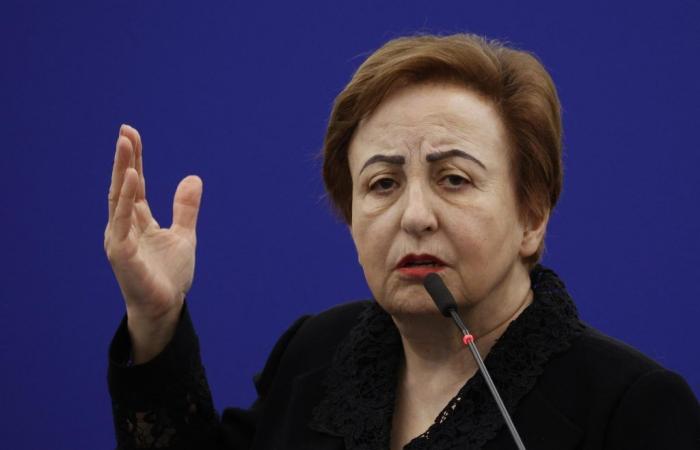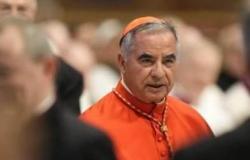
«There will be no change after the elections in Iran». The jurist Shirin Ebadi, the first Iranian and first Muslim woman to obtain the Nobel Peace Prize in 2003, who continues to fight for her country from exile in London, is certain of this. Tomorrow, Friday 28 June, the presidential elections will be held in Iran, called after the death of President Ebrahim Raisi. The Guardian Council accepted only six candidates out of the 80 registered: all men – “according to the Constitution the president cannot be a woman”, she explains to Open Ebadi -, almost all ultraconservative (two dropped out of the race so as not to waste votes). Only one of them, former Health Minister Masoud Pezeshkian, is considered a reformist. But the approval of his candidacy, experts say, is part of the Islamic Republic’s plan to increase voter turnout. Friday’s elections are taking place in a context of widespread discontent among the population, due to the harsh repression by the Iranian authorities – following the “Women, Life, Freedom” protests that erupted after the killing of Mahsa Amini – but also due to the perennial economic crisis. Voters have long been expressing their disillusionment with a regime that represses any form of dissent. The result will most likely also be affected by turnout, at historic lows in the 2021 presidential elections and in this year’s parliamentary elections. And this time too, human rights activists have called on the population to boycott the “farce” polls on Friday. “I haven’t voted for years because elections in Iran are not free and the population has realized over time that it is useless to go to the polls,” says Ebadi.
Will there be a change in Iran with the elections on Friday 28 June?
«According to the Constitution of the Islamic Republic, all powers are in the hands of the Supreme Leader, Ali Khamenei, and the president should execute and, therefore, realize his wishes. All six candidates for the presidency of Iran have already said in their speeches that they will put his wishes into practice. It’s just that everyone thinks they can implement the leader’s agenda better than everyone else. So there will be no change after the elections: all decisions will continue to be made by Khamenei. This means an authoritarian regime and for this reason the majority of people, especially workers and teachers, have never participated in the vote and continue to desert the polls today.”
One candidate of the six, Masoud Pezeshkian, is considered a reformist. In the past you believed that Iran was reformable…
«Yes, in the past I believed that reforms would make Iran a better country, but experience taught me that I was wrong. For example, when the reformist politician Mohammad Khatami became president (in 1997, ed.) remained in office for 8 years and the reformist majority of the sixth legislature lasted 4, we have seen that there was no significant change in Iran. And then we got to today and we understood that nothing can be achieved with reforms. The reason is that according to the Constitution of the Islamic Republic, the powers are all in the hands of the Supreme Leader, who is elected for life by a group of high-ranking clerics and not by the people. Therefore the road to any reform is closed, there is no other way other than to change the foundations of Iran and the Constitution.”
Many activists, including Narges Mohammadi, have asked the population not to show up at the polls, what do you think?
«It’s been years since I participated and, therefore, I don’t vote because the elections in Iran are not free. All candidates must first be approved by the Guardian Council: the population is not free to choose its own representative, but only one among those selected by the constitutional body. Not even the members of the Council are chosen by the Iranians. There are a total of 12 people, 6 of whom are theologians appointed directly by the Supreme Leader and another 6 people are jurists appointed indirectly by Khamenei. And the representative of the latter in the judiciary elects these people, who will make decisions for the entire population. Elections in Iran are not free, they never have been. And this is also why many people don’t vote, over time they have realized that it is useless.”
Do you expect something from the international community?
«I expect the international community not to support the dictator. The fight for democracy is the task of the Iranian people. Therefore we ask Western democratic countries, in particular Europe, not to help the dictator.”
Why are women so little, if at all, involved in electoral and political processes in Iran?
«According to the Constitution of the Islamic Republic, the president must be a man. The women who tried to register were, in fact, not accepted because of the Charter.”
What role do women have? Is it a regime that wants to control their bodies?
«Patriarchal culture first wants to have control over women’s bodies and then over their brains. This is why in Iran we have laws that force women to wear the veil. The regime represents man and it is the patriarchal culture that must decide.”
About women fighting for the freedom of Iran, the revolution started after the killing of Mahsa Amini has it suffered a setback?
«After the assassination of Mahsa Amini in 2022, a social and not a political revolution broke out. People have realized their power and women have demonstrated how capable they are of shaking up society. When a social and not a political revolution breaks out in a country, this revolution never fails. And despite the regime’s harsh repression and the large number of people killed, tortured and arrested, we see that women in Iran continue to take off their veils whenever they can because what they want is equal rights.”
Besides awareness, what have the large protests left behind?
«The demonstrations have left even more resentment towards the regime. The population has distanced itself even further from it because they see how violently the regime kills young people in the streets, shooting them in the face. Many of them lost their sight and only 150 boys and girls were accepted into Europe to be operated on in France and Germany. All this has caused even more anger and hatred among the people.”
She too was persecuted by the regime, but continues to fight for human rights in Iran…
«I was persecuted by the regime for opposing human rights violations. Furthermore, all my belongings and properties as well as my home, office were confiscated and my bank accounts closed. Being abroad at that time, my sister and husband were arrested and spent some time in prison. Now they are free. All this made me understand, and see even better, what the regime does to people. But I’m not afraid, I will continue on my path because I firmly believe in my goal: Democracy in Iran.”
So do you see democracy in Iran’s future?
«I know that the Iranian people will eventually achieve democracy because when the entire population wants something, sooner or later they will have it. The population knows which way to go and how to achieve change. Democracy has a cost: Iranians are aware that the regime does not intend to respond to their questions and fair requests. For this reason he has no choice but to take to the streets and demonstrate. But a people who are willing to pay for democracy will ultimately achieve the goal.”





